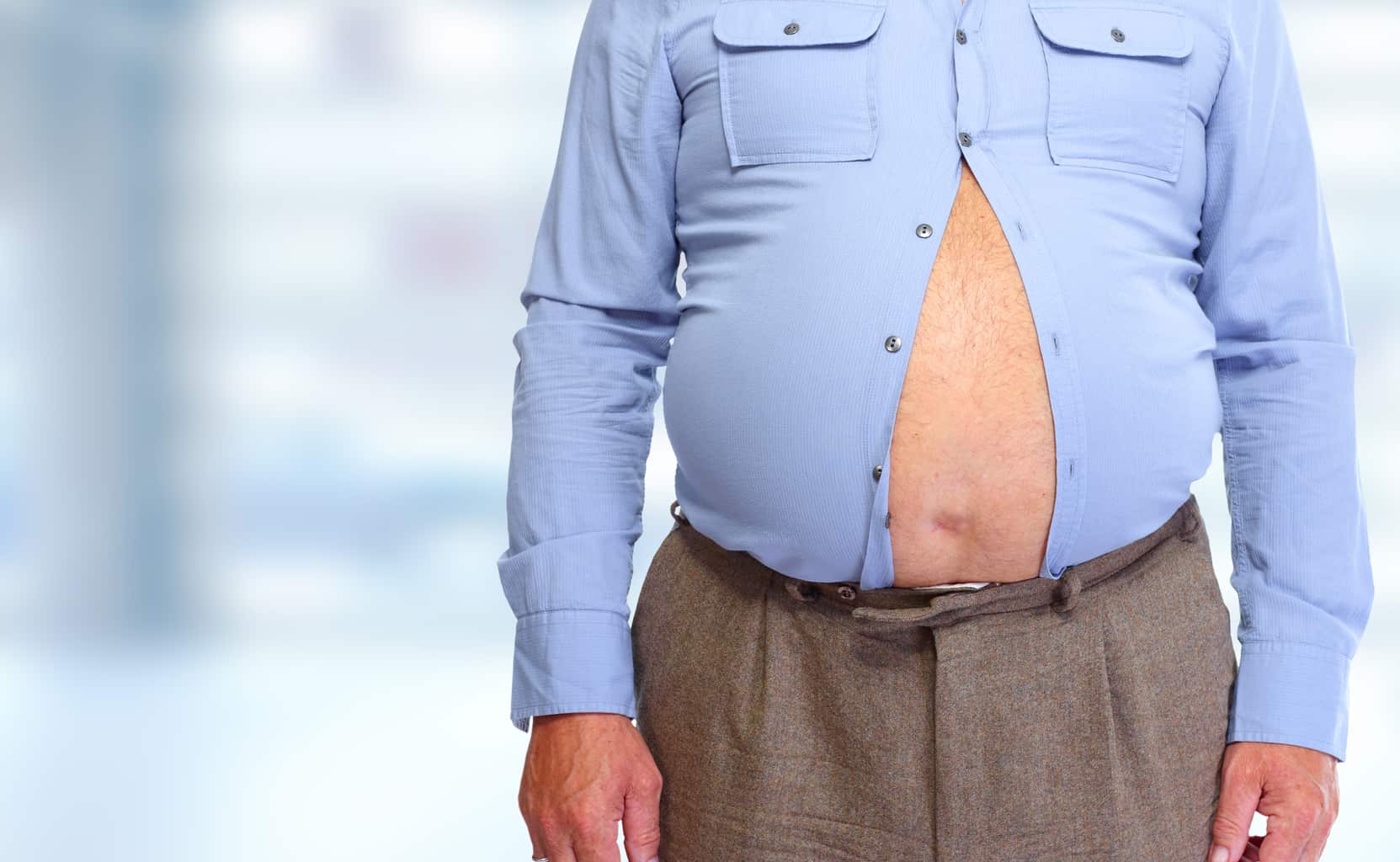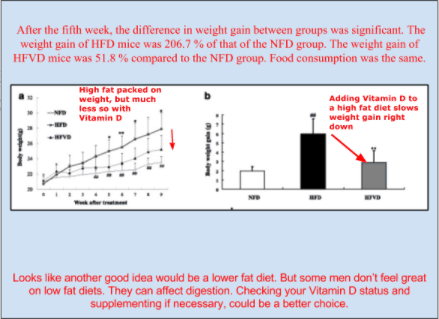
[cmamad id=”13504″ align=”center” tabid=”display-desktop” mobid=”display-desktop” stg=””]
Here’s how this common vitamin stops fat from building up in your body.
——Important Message—–
Diabetes deemed one the most expensive diseases – but here’s how men are fixing it for $2…
In terms of personal health care spending, diabetics spend a ton just to treat the symptoms…

But this $2 remedy may reverse diabetes in 2 weeks or less…
As you may know, type 2 diabetes is a combination of TWO problems:
#1 – Insulin resistance – The cells no longer respond to the body’s natural insulin.
#2 – Beta cells not working – The beta cells in the pancreas get worn out and they stop producing enough insulin for the body’s needs.
Most people don’t know this: You can have insulin resistance even if you are not diabetic.
Almost everybody has some insulin resistance now and then. It doesn’t make them diabetic.
What makes a person diabetic is both insulin resistance and the beta cells not working.
So now… Did you know that a simple $2 remedy may reverse diabetes?
Did you know that you can drink Coke, eat ice cream and pizza, and NEVER have diabetes again?
This remedy has been used for over 100 years. But Big Pharma hates it…
————–
This common vitamin resists fat gain
This study caught my eye.
Not just because of what they’re saying (which is dynamite).
But also because of HOW they say it – as if everyone already knows:
“Obesity is associated with vitamin D deficiency…”
Did you know that?
Apparently, it’s well-known among scientists. But what about the rest of us?
- Do you hear guys complain that low Vitamin D is making them fat?
- Do they say they’re going to lie in the sun to lose some weight?
- Is Vitamin D the hottest new diet fad?
No, no, and no.
[cmamad id=”13505″ align=”center” tabid=”display-desktop” mobid=”display-desktop” stg=””]
THIS is why I read scientific studies! How else would I find out stuff like this?

Vitamin D resists fat gain.
Unlike just about every other darn thing out there – beer, fried food, stress, whatever – here’s one that’s on your side!
And you can get it from sunlight. Or from a supplement.
“We provide evidence that VD3 (vitamin D) / VDR (a vitamin D receptor) regulates body weight and white adipose tissues weight without changing food intake and blood lipid levels…”
No dieting!
“…reinforces energy metabolism, resulting in resistance to obesity caused by a high-fat diet…”
Vitamin D helps your body burn more calories.
That’s not just good for your waistline. It’s good for your heart. Your liver. Your joints.
“Obesity is associated with several chronic diseases, including fatty liver, heart disease, type 2 diabetes mellitus, certain types of cancer, and osteoarthritis.”
Three groups of mice were studied for nine weeks…
The first group ate a normal-fat diet (NFD) – 10% of calories from fat (lard).
The second group ate a high-fat diet (HFD) – 45% of calories from fat.
The third group ate the high-fat diet too, but they also got Vitamin D3 (HFVD).
“Body weight significantly increased after 4 weeks for the HFD group while treatment with VD3 (HFVD group) resulted in decreased body weight beginning the 5th week compared to the HFD group… All mice have almost the same original body weight.”
Vitamin D didn’t suppress their appetites, so the weight loss was not due to eating less!
“Daily food consumption was almost constant, implying appetite was not affected between groups – and that differences in weight gain cannot be attributed to differences in calorie intake.”
So how does Vitamin D stop weight gain if it’s not making you eat less?
It helps uncoupling proteins (UCPs) work better.
“Uncoupling proteins (UCPs) have become prominent in the fields of thermogenesis, obesity, diabetes, and free-radical biology, and have been considered candidate genes for obesity and insulin resistance…”
“Among the five subtypes of uncoupling proteins, UCP3 is a member of the mitochondrial transporter superfamily and is expressed predominantly in skeletal muscles.”
So this one works in muscles.
Could this be another good reason to want more muscle?
“Uncoupling protein 3 (UCP3) is negatively correlated with body mass index (BMI), suggesting a potential link between UCP3 and obesity, potentially by the proposed roles of UCP3 in facilitating fatty acid oxidation and preventing triglyceride accumulation.”

“Normal” fat diet (NFD) – not normal in real life.
Just a footnote: The mice that had the “normal” fat diet (NFD) put on the smallest amount of weight.
But 10% fat is a very small amount.
Maybe it’s normal for mice, but it’s not normal for men.
The Chicago Tribune looked into what 10% fat would mean on a 2,100 calorie diet:
“A 10% fat-calorie diet means essentially no meat, no chicken, no fish, no oil, no french fries, no butter, no conventional cheese, no peanut butter, no ice cream, very few prepared foods, and not even any guacamole, as avocados are fairly high in fat: An 8-ounce California avocado has 30 grams.”
A 2,100 calorie diet is not very many calories for most men either… just saying.
What does this mean?
Unless you’re going to extremes to avoid fat, you’re probably eating a relatively high-fat diet. Compared to the NFD mice in the study, anyway.
Which means it’s worth getting your Vitamin D levels checked.
If you’re battling with your weight, having your Vitamin D levels tested could really help.
Even if you are one of those rare people who gets lots of sunlight every day.
Sun will help, but…
Sun alone may not provide enough Vitamin D.
Another tip: A test result of just above deficiency levels is probably not good enough.
For best results, you want a reading that’s quite a bit higher than that.
But you don’t want a reading that is too high either. You should talk to your doctor about that.
Oh, and one more thing.
Don’t let anyone give you any other type of Vitamin D than D3!
That’s the one they tested on the mice.
It’s also the one we already know has many additional health benefits that you can read more about on this site.
—–Important Message—–
This invisible poison kills erections – and you may have eaten it twice today already…
A terrible epidemic is killing men’s health and their hard-ons…
In 1960, only 2% of men were heavy or obese. And only about 3% of men reported suffering erectile dysfunction.
But now, according to the latest research, 40% of men over 40 are experiencing erection problems regularly.
And 60% of these men are heavy or obese.
Men often report belly fat they can’t get rid of, along with poor or non-existent erections.
I knew there was a relationship between belly fat and poor hard-ons.
Then I discovered that many men are also suffering from something called penile fibrosis.
Penile fibrosis: Hardening of the arteries in the erection chambers of the penis.
These same men had low testosterone and belly fat.
The mystery was deepening.
What could be the cause of poor erections, flab, and penile fibrosis?
I call it being “fat, flaccid, and sick.”

———-


Leave a Reply